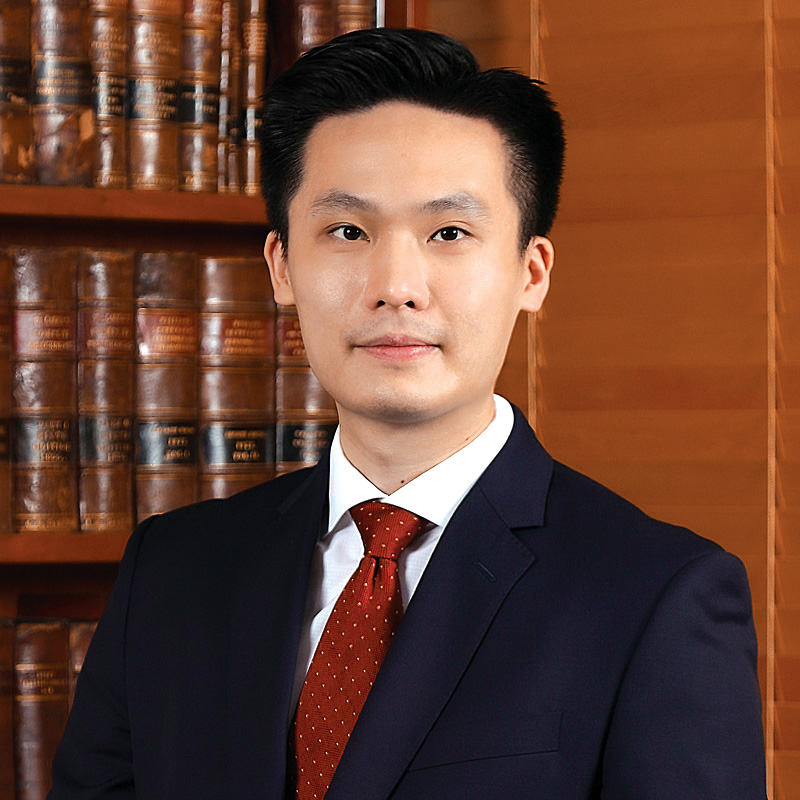SQW v LPC [2025] 2 HKLRD 649, [2025] HKFC 56 (Esmond Wong)
Esmond Wong represented the respondent in SQW v LPC [2025] 2 HKLRD 649, [2025] HKFC 56.
This was an application by a moneylender, X, for joinder in matrimonial proceedings. X had granted loans to the husband (H) prior to the institution of divorce proceedings by the wife (W) in the Family Court (the FC Action). After the divorce petition was presented, X obtained a default judgment against H in the District Court in respect of his failure to repay the loans, as well as a charging order nisi and absolute over the matrimonial home (the DC Action). H was the sole legal and beneficial owner of the matrimonial home in which both parties and their adult child resided, and which was in dispute in the ancillary relief proceedings. W then successfully applied to be joined to the DC Action, seeking inter alia to set aside the charging order absolute (W’s DC Summons). Subsequently, X sought to be joined to the FC Action on the issue of X’s interest in the matrimonial home. W’s DC Summons was adjourned pending the determination of X’s joinder application.
At the present hearing of X’s joinder application, the Court noted that irrespective of its decision, the parties’ disputes remained to be heard in different courts as the validity of the charging order absolute would have to be determined by the Master in the District Court. The Court considered the issue of the appropriate forum to deal with matters on a third party charging order over a property owned by a party to ongoing divorce proceedings (the Forum Issue).
Held, granting the joinder to X and summarising the principles and approaches on the Forum Issue, that:
(1) Section 52AB(3) of the District Court Ordinance (Cap.336) (the DCO) provides that a charge imposed by a charging order shall have the effect and be enforceable in the same manner as an equitable charge created by a debtor in writing. Hence, a charging order did not confer legal or equitable proprietary rights or title in the property but instead conferred on the chargee rights to apply to courts for an order for sale or for appointment of receiver. A charging order nisi, when made absolute, would take effect from the date of the order nisi. This did not detract from the fact that the order was defeasible if sufficient cause was shown (Sino Billion Ltd v Lam Chok Wai [2003] 2 HKC 167, Leader Screws Manufacturing Co Ltd v Huang Shunkui [2023] HKCA 1193 applied.) (See paras.40-42.)
(2) Pursuant to s.52A(2) of the DCO, when deciding whether to make a charging order, the court had to take into account all circumstances of the case, in particular any evidence before it as to: (i) the personal circumstances of the debtor; and (ii) whether any other creditor of the debtor would likely be unduly prejudiced by the making of the order. In the context of ongoing divorce proceedings, the protection of the needs of the children and the interest of the spouse in the property were circumstances that ought to be considered when making a charging order. This applied whether the property was held by one or both parties of the divorce proceedings (Harman v Glencross [1986] 1 All ER 545, Chan Ting Wai William v Lam Sai Pak (HCA 2587/1997, [1998] HKEC 66), Kremen v Agrest [2013] EWCA Civ 41, IISW v SDS-W (FCMC 1399/2006, [2014] HKEC 2162), SJH v CYHC (FCMC 4264/2012, [2016] HKEC 1397) applied). (See paras.43-44.)
(3) If the divorce petition was presented before the application for making the charging order absolute was heard, the civil court should consider whether it would be proper to make the order. Except in clear cases, it was more prudent to transfer the charging order application to the Family Court so the application could be heard together with the application for ancillary relief. The Family Court could then consider all the circumstances of the case and balance the interests of the judgment creditor and those of the spouse and children. Generally, the interests of the judgment creditor should be respected, save to the extent that it was necessary to override them in order to make appropriate provisions for the spouse and children. The Family Court could also consider options other than immediate sale of the property or immediate full repayment to the judgment creditor from the sale proceeds if the property had to be sold. Parties could also consider settlement via the financial dispute resolution procedure in the Family Court. After the charging order was made absolute, it would require special circumstances for it to be set aside. (See para.45.)
[The above is excerpted from the headnote to the report in HKLRD.]


